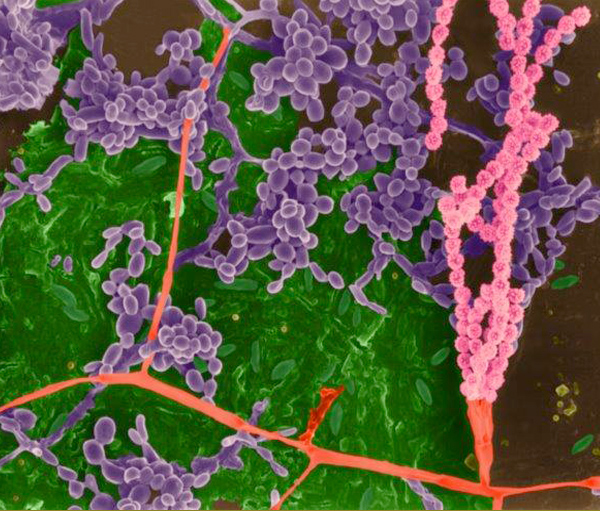
© Dennis Kunkel Microscopy
Home Resources Pathogens What is Giardia lamblia?
What is Giardia lamblia?

© Dennis Kunkel Microscopy
Giardia lamblia is a protozoan (parasite) that is implicated to be the most common non-bacterial causative of diarrhea in North America. Giardia is implicated in 1/4th of all diarrheal diseases in adults in North America.
What diseases are caused by Giardia lamblia?
Infection with Giardia lamblia causes a chronic diarrheal disease called giardiasis that is characterized by steatorrhea (fatty stools), abdominal cramps, bloating, frequent loose stools, fatigue and weight loss. Reactive arthritis is a common complication after a severe and chronic episode of giardiasis.
Who is more susceptible to infection from Giardia lamblia?
All individuals are susceptible to infection with Giardia. However, the bug is more prevalent in children than in adults, possibly because many individuals seem to have a lasting immunity after infection. The bug is also commonly seen in homosexual and HIV infected men possibly secondary to sexual transmission.
Epidemiology of Giardia lamblia
Giardiasis is transmitted through the feco-oral route. It is more commonly associated with water consumption, though there have been a few episodes of food borne disease due to infected food handlers.
Incubation Period
Usually 3-25 days, sometimes longer, with a median of 7-10 days.
Diagnosis
Identification of cysts or trophozoites in stool samples.
Treatment
Metronidazole and Tinidazole are the drugs of choice. Quinacrine and Albendazole are alternatives.
Contact EHA Consulting Group today for more information about how we can assist your company.
We offer services for
- Retail Food Safety
- Restaurant Food Safety
- Manufacturers
- Food Trucks
- Drugs & Cosmetics
- Melons & Cantaloupes
- Produce
- Warehouses
- Food Packaging & Packaging Materials